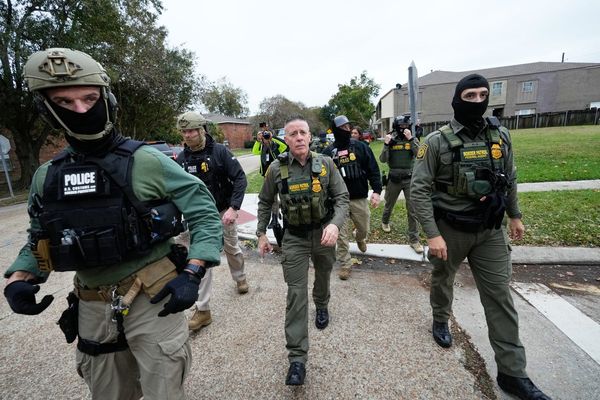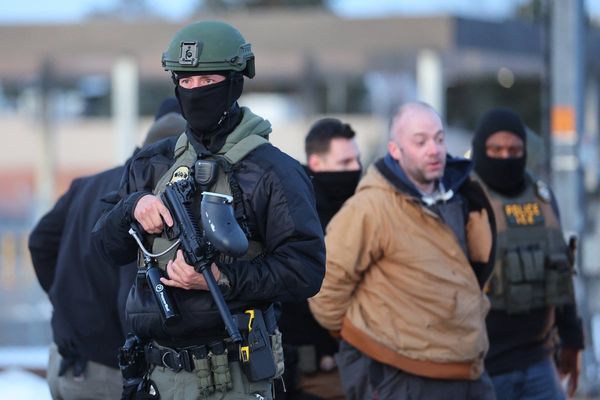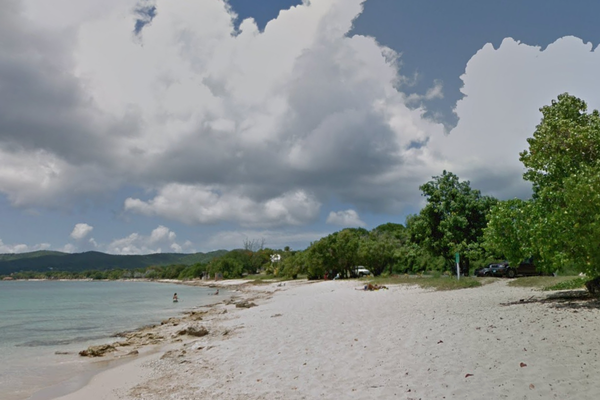
How to make sense of North Korea? It is not only the world’s loosest nuclear cannon, but a hereditary communist dictatorship, a patch of darkness in east Asia’s night‑time sea of light, one-third of George W Bush’s “axis of evil”, a state little larger than Ohio with the world’s fourth-largest military, a so-called hermit kingdom where less than 1% of its exploited and terrorised population has access to the internet. The west has often gone for the easiest answer: to mock it. It’s hard to imagine another human rights-abusing, nuclear-enabled regime being the backdrop for crass Hollywood comedies. But the ruling Kim dynasty has provided a reliable laughing stock for big-budget films from Team America: World Police, in which a screaming alien cockroach bursts from the corpse of a puppet Kim Jong-il, to The Interview, where hapless journalist James Franco is sent on a CIA mission to assassinate Kim Jong-un but ends up partying with him to a Katy Perry CD.
The Sister, a detailed, insightful study by the US-based scholar Sung‑Yoon Lee, sets out to debunk this “profound condescension bordering on racism”. It uses the rise of the newest star in the Kim family business – the current supreme leader Kim Jong-un’s younger sister, Kim Yo-jong – to parse her country’s strange present and possible future, beyond the grotesque headlines. Over the past decade, Kim Yo-jong, now in her mid-30s, has become second only to her brother in terms of power and influence, and – controversially in a rigidly patriarchal society – his possible successor. As the head of the regime’s propaganda arm and a highly visible lead on its foreign policy, the “princess” has inevitably been portrayed with sexist overtones as somewhere between a charming, charismatic pop star and a sadistic power behind the throne.
But rather than simply recycling the Kims’ cult of personality, The Sister underlines its roots in the trauma inflicted on Korea by the US and the USSR as they divided up its territory in the closing days of the second world war. On 11 August 1945, three American officers “poring over a small National Geographic map of east Asia … less-than-methodically determined that the 38th parallel running east-west across the peninsula was likely to be the northernmost line acceptable to Stalin”. The hastily drawn border between north and south sparked the devastating Korean war and sealed the peninsula’s fate as a permanent proxy battleground for rival superpowers. When the Soviets chose Kim Il-sung – a Russian‑speaking former guerrilla leader and Red Army major – to lead the new Democratic People’s Republic of Korea, its future became entwined with that of the “Mount Paektu bloodline” today headed by his grandson.
The myth-building needed to create a semi-divine dynasty from scratch was extreme, and Lee is excellent on the regime’s reliance on suppressing, distorting and manipulating information – “North Korea is a state built on bold and blatant falsehoods,” he writes. Unmentionable truths include the fact that Kim Il-sung’s parents were Christian, that Kim Jong-un’s mother was born in Japan and that his aunt defected to the US – all “crimes” that would have entire ordinary North Korean families executed or sent to the gulags. And then there’s the famously decadent lifestyle enjoyed by the ruling family while the majority of its people endure poverty and hunger. (Lee mentions in passing the eye-popping fact that he attended an international school in Switzerland with the current leader’s elder half-brother.)
While propaganda, now often overseen by Kim Yo-jong, is the regime’s favoured weapon of internal repression and external attack, its nuclear arsenal – which Kim Jong-un calls his “treasure sword” – is its ultimate guarantor. Over the past 18 months, the regime has dramatically escalated both its aggressive rhetoric and its testing of banned weapons, tools of blackmail and extortion familiar from an exhausting carousel of failed diplomatic initiatives that Lee, who has advised successive US administrations, describes in detail. His vivid account of surreal, intractable negotiations with the Kim siblings underlines The Sister’s central insight: Kim Yo-jong is very much part of the family. Even if she steps into the role of the first female supreme leader, change will not come at her hands.
• The Sister by Sung-Yoon Lee is published by Macmillan (£20). To support the Guardian and Observer, order your copy at guardianbookshop.com







